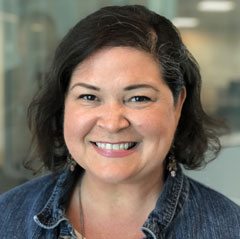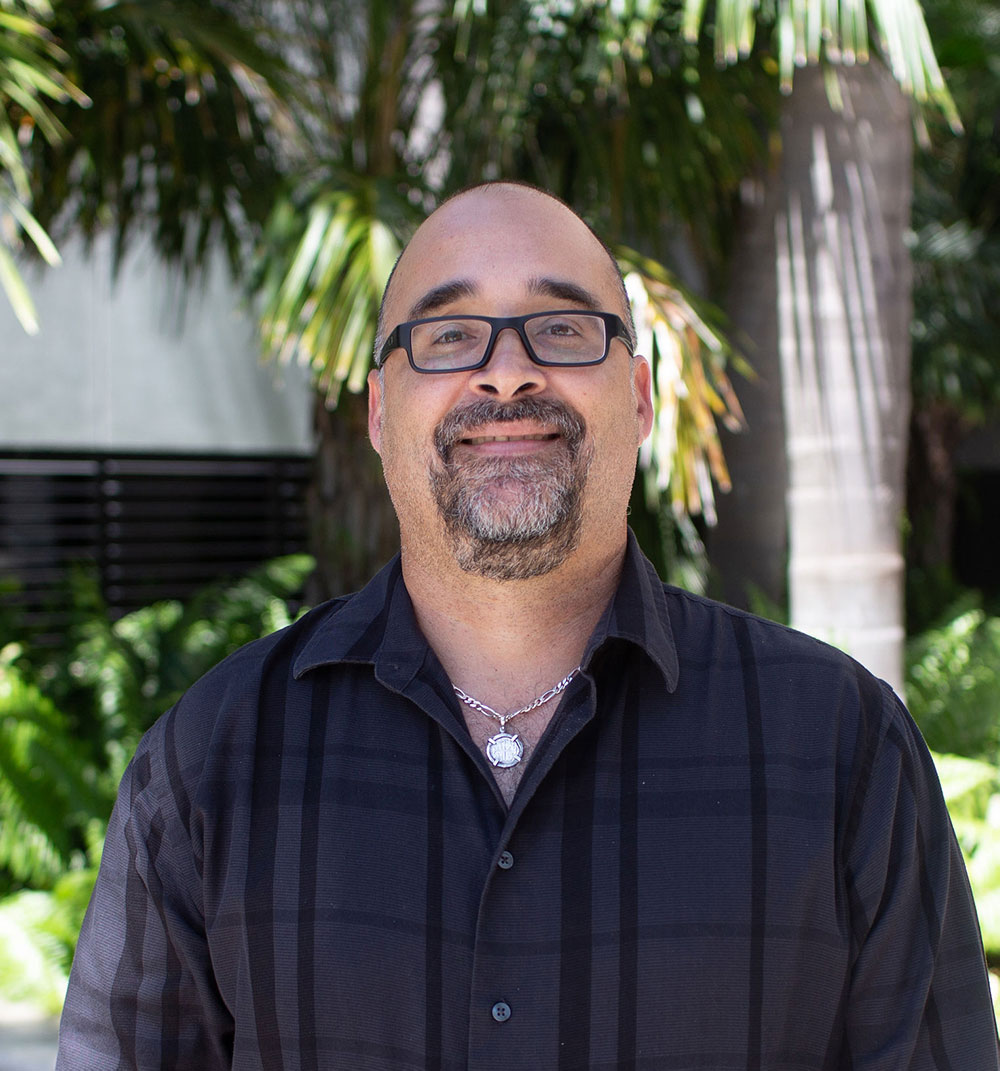Professor uses high-tech tools to teach students how to shape life with Earth science

Jan 12, 2023, 3:00 PM.
article key points
Award-winning professor of online and hybrid courses, Rodolfo Rego, is passionate about geology and underscores the need for Earth science majors.

Rodolfo Rego knows how tough it can be to engage students. As an associate professor at FIU’s Department of Earth and Environment, Rego is currently focused on making teaching relatable and compelling. Raised in South Florida, Rego grew up in the Keys and he’s constantly looking for ways to help the state of Florida and the nation with the things he teaches in his courses, which are used to fulfill the university core curricula (UCC) undergrad requirement.
“South Florida is something that I’ve always had in my blood, deep down and in my bones,” he states. Both his undergraduate and graduate degrees were in geology from FIU—he’s been on the other side, he states. He knows what it was like as a student, so when a teaching opportunity came available, he took the position and strives to create profound learning experiences.
“I wanted to help preserve our community for future generations. And that’s kind of what my goal is—to shine the light on the uniqueness of this area and make sure there are people who are trying to protect these resources for future generations,” he declares.
Interactive courses
With specific expertise in geology and knowledge of ecological topics, marine ecosystems and anything that has to do with South Florida’s natural habitats, Rego admits water is an area of concern for South Florida’s future. He talks passionately about the ways he pulls students into subject matter with 360 picture resources, Google Earth and interactive technology.
With each of his classes, online and hybrid, Rego makes use of state-of-the-art technology that renders three-dimensional photos of minerals. Technology for teaching is something he’s enthusiastic about as he’s presented at conferences to help guide other educators in Florida and across the nation. He’s even won an award for his use of H5P, which allows users to create, share and reuse interactive content.
Rego understands H5P software well; he’s put quite a bit of time into using it and it’s “one learning tool that has stuck around,” he says. Each class is an opportunity to teach the next generation to solve the challenges that have been created within our environment, he notes, so using engaging content in pedagogy helps bring those concepts to life.
Interdisciplinary studies
“If we don’t resolve issues, we’re going to have a much larger problem,” warns the geologist who makes the distinction that the majority of what he teaches these days is termed “Earth sciences,” not simply geology.
“There’s a mix of a lot of things. When you study geology, there’s quite a bit of interdisciplinary research and teaching that’s going on,” he explains. Things like resources and materials for construction, infrastructure, water—and he draws connections to how they relate to Earth sciences.
Florida connection
The field is evolving, he explains, not just with technology, but also with the connections that geology has for conservation and climate change, and this could not be clearer than with sustainability practices that are being incorporated in various industries. In South Florida, the hospitality and tourism industry has moved swiftly into sustainability, and habitat preservation to preserve tourism and protect tourism dollars. The Florida Department of Transportation has studied alternatives to satisfy the needs for ongoing building along the I-4 corridor in the state. From sinkholes to flooding and erosion, problem soils to geochemical hazards, there are many geohazards unique to the state.
“In a way, geology is everything because we use the resources from the Earth for just about everything that you can imagine in daily life,” offers Rego. “But it’s so much more than rocks and minerals.”
From fossil fuels being located and extracted from the ground, environmental engineering and environmental science and environmental law—Earth scientists are needed. They understand the concerns and mitigating strategies that must be developed to reduce harm to property and life. They can serve as geologists, hydrologists, atmospheric scientists, and even meteorologists.
“The Earth is very dynamic, and we’re trying to understand every bit of it so that we know what to expect,” says Rego. “I want students to inform the participants in our communities—this is where we work, live and play. My hope is that they further their knowledge with Earth sciences to make a global impact.”
